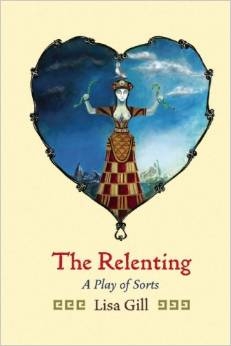The Hotel Under the Sand
The Hotel Under the Sand is a sweet, touching and funny story aimed at children from about 8-12 years old. Fans of Eva Ibbotson will love the friendly ghosts, gentle tone and quirky characters. It has a charming old-fashioned feel. Children books nowadays tend to be hectically paced adventures defeating terrifying villains. This quieter, sweeter yet witty book makes a nice change. Continue reading “The Hotel Under the Sand”

 Not every writer could make a face-down with a rattlesnake in her Moriarty living room “a primal encounter waiting to be interpreted,” yet that’s precisely what Albuquerque poet Lisa Gill has done. Her introduction to the play, “The Catalyst & the Evolution,” contains one of the best descriptions of the writing process I’ve read: “Ecdysis is the word for the skin sloughing snakes do and might as well be the word for the process writers go through with revisions of certain manuscripts, those texts whose life cycles demand we shed draft after draft, abandoning each accrued preconception to ultimately access deeper instinct.”
Not every writer could make a face-down with a rattlesnake in her Moriarty living room “a primal encounter waiting to be interpreted,” yet that’s precisely what Albuquerque poet Lisa Gill has done. Her introduction to the play, “The Catalyst & the Evolution,” contains one of the best descriptions of the writing process I’ve read: “Ecdysis is the word for the skin sloughing snakes do and might as well be the word for the process writers go through with revisions of certain manuscripts, those texts whose life cycles demand we shed draft after draft, abandoning each accrued preconception to ultimately access deeper instinct.”